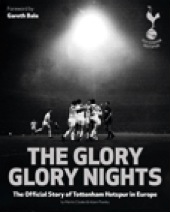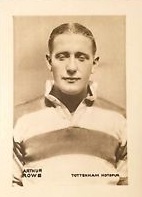 Arthur Rowe is the manager who led Tottenham Hotspur into the modern era, and in the process changed English football forever. His achievements are only just becoming fully recognised, partly because of the subsequent achievement of Bill Nicholson and the Double “team of the century”, and partly because of Rowe’s understated style. But Rowe’s influence on the club is immense, and arguably it was he who was the pivotal figure in shaking the English game out of its complacent insularity. A Tottenham lad through and through, Rowe was born literally a goal kick from White Hart Lane in 1906. He signed for Spurs as a 17-year-old after playing for nursery clubs Chesgunt and Northfleet United – another product of Peter McWilliam’s vision. He went on to establish himself in the first team. As a player, Rowe was a cultured centre half, always looking to play the ball rather than hoof it upfield. He was a student of McWilliam’s approach, and when he had to retire due to injury in 1939 there was little doubt he would go into management. He travelled to Hungary on a lecture tour, where he encountered a wave of new tactical thinking about the game that emphasised passing and movement, and a more fluid tactical line up with forwards dropping deeper to pick up the ball. While there he met Gusztáv Sebes and Ferenc Puskás, who would themselves have a profound influence on the game – not least when the Hungarian national team managed by Sebes and captained by Puskás became, in 1956, the first team from outside the British Isles to beat England at Wembley. The Magical Magyars not only beat England, they humiliated them in a 6-3 victory in which their fast, fluid play play bewildered the home players and drew gasps of admiration from the stands. The Times newspaper called it “A new conception of football.” Rowe was offered a job by the Hungarian FA, but the outbreak of war saw him return to England where he coached the army football team. In 1945 he became manager of non-League Chelmsford City, who he led to the league title. At Spurs, they took notice and in 1949 the man born and bred in Tottenham became the boss. He wasted no time in getting to work. Spurs were languishing in the Second Division, but Rowe did not resort to fighting his way out. He knew the football he wanted played, a game based on what he had learnt and practiced under McWilliam, but infused with and updated by the idea Rowe had encountered and developed in his study of the game. His first signing was a statement of intent, an attack-minded full-back named Alf Ramsey. Rowe explained what he wanted in simple terms. He wanted short passing and lots of movement. His simple approach was encapsulated in a series of short phrases he drummed into the team; “A good player runs to the ball, a bad player runs after it” and “keep it simple, keep it quick”. His captain, Ron Burgess, said he realised early on that “our new tactics might sweep the country”. The ideas also made quite an impression on two other players in Rowe’s side. Their names were Eddie Baily and Bill Nicholson. 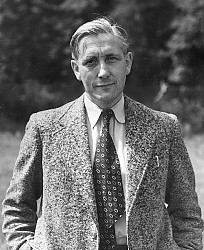 Spurs topped the Second Division for the entire campaign, finishing nine points clear. They scored more goals and conceded fewer than any of their rivals. And they were watched by an average home gate of 54,405. Back in the top flight, many people predicted Spurs would find it so easy. On 18 November 1950, Spurs blew accepted wisdom out of the water. The opponents at White Hart Lane that day were Newcastle United, at the time the league leaders and the epitome of the English game, employing the traditional W-M formation with five solid defenders and five strong forwards, direct passing and, while not short on skill, also reliant on liberal amount of sheer power. Rowe’s Tottenham team destroyed them, winning 7-0. The Daily Telegraph reported that the Spurs game “is all worked out in triangles and squares and when the mechanism of it clicks at speed, as it did on Saturday, with every pass played to the last refined inch on a drenched surface there is simply no defence against it.” The Tottenham Weekly Herald’s reporter said Spurs would “create a revolution in British soccer”. Spurs went on to win the League title that year for the first time in their history. They were only the third team in the history of English football to win the Second and First Division titles in consecutive seasons. The team was acknowledged to be one of the finest ever seen, the new style dubbed “push and run”. Rowe would never again achieve these heights, and his inability to bring more trophies to the club eventually led to him having a nervous breakdown in 1955 and he retired. But Rowe had taken what had been started by the team dubbed the Flower of the South in 1901, and developed by progressive managers such as John Cameron and Peter McWilliam. He stamped The Spurs Way into the club’s DNA. Not only that, he forced English football to change its ways, to deal with the new tactics of his side and in so doing to begin to look outwards to the new ideas coming from the Continent of Europe rather than wallow in the complacent insularity that for years had maintained English football had nothing to prove because it had invented the modern game. He, alongside those other great managers Matt Busby and Jock Stein, realised that English football’s future was competing in Europe, not confining itself to a small island. The year before he retired, he made one more signing – a gifted half back who had a cultured approach to playing, a keen interest in modern ideas and a burning desire to stretch the boundaries of achievement. His name was Danny Blanchflower. Without Rowe, there would have been no Bill Nicholson, no Double. That is not to take anything away from Nicholson’s Super Spurs, but it was Rowe whose team Nicholson and his assistant Baily played in, Rowe who signed Nicholson’s captain Blanchflower, Rowe who took that had shaped Spurs’ early years and moulded them into a potent force for modern times. Rowe’s style was understated, despite the flamboyance of his teams. He once said “All you need to remember is that 50 per cent of the people in the game are bluffers. So a decent manager's halfway there when he starts out.” But Rowe was a master craftsman, and despite his traditional English reserve he harboured deep emotions about the club he devoted his life to. There is no more moving example of this than the interview Rowe gave in 1982, when English TV programme Sportsnight screened a documentary to mark the club’s centenary. Watch the video and wait for Rowe to answer the question: “What does Tottenham Hotspur mean to you?” It is a beautiful piece of TV in which the director and reporter have the courage to let the silence do its job rather than fill it with inane commentary, and if you watch it and are not moved you must have a heart of stone. Arthur Rowe died on 5 November 1993. In his obituary in The Independent newspaper, the veteran football writer Reg Drury said Rowe had “one of the sharpest brains the English game has ever known.” Rowe’s contribution to English football, and especially to giving Tottenham Hotspur the identity it has today, cannot be overstated. He is the link between the two parts of the club’s 20th century, the man who laid the foundation for one of the greatest, most romantic and inspiring club stories in English football. He is, quite simply, a giant. Martin Cloake’s ebook about Arthur Rowe is available for iOS, Kindle, Nook and other devices for just £2.99. His other books about Tottenham Hotspur, including ebooks that can be downloaded directly to your computer or mobile device, can be ordered from his bookstore. About the Author:
Martin Cloake is a writer and editor who lives in London, UK. A Spurs season ticket holder, he has followed the team since 1970, travelling all over the UK and Europe to support them. His latest book, Sound of the crowd, is a look at changing fan culture in England with an emphasis on Spurs supporters. He is a regular contributor to Spurs fansites and podcasts. He also writes more widely on football and the football business for a variety of publications including the New Statesman. Martin Cloake’s books about Tottenham Hotspur, including ebooks that can be downloaded directly to your computer or mobile device, can be ordered from his bookstore. View Full Bio Follow @MartinCloake More by Martin Cloake
4 Comments
Prathamesh Shende
16/4/2014 03:41:14 pm
Beautiful!
Reply
DeepakS
17/4/2014 07:04:34 am
The whole piece is so beautifully put. I was transferred to another era. Thanks a lot Martin for giving us a chance to feel and experience our heritage through your words. Proud to be a Spur. COYS!!
Reply
mikow
25/4/2014 10:58:24 am
COYS
Reply
David Rowe
15/8/2014 09:31:46 am
This is my uncle.
Reply
Leave a Reply. |
Features
Flying Down to Rio History of T.H.F.C. Tribute to Bill Nicholson Talking Tottenham Early Legends The Road to Turin International Connections Hotspur Towers Most Read Articles
The 100 Year War Interview with Marina Sirtis A Long Dark Shadow By Royal Appointment School Report: An Insight into the Younger Eric Dier Dear Jimmy All Change At Spurs Hotspur Towers History Of THFC: Part 1 Passage to India: Rohan Rickets Thanks For The Memories Our Tommy Carroll The AVB Files: Part1 The Lilywhites You The Jury The Hand Of Hugo Connection - Argentina Creating a Reputation One Hotspur Archives
August 2018
Categories
All
|
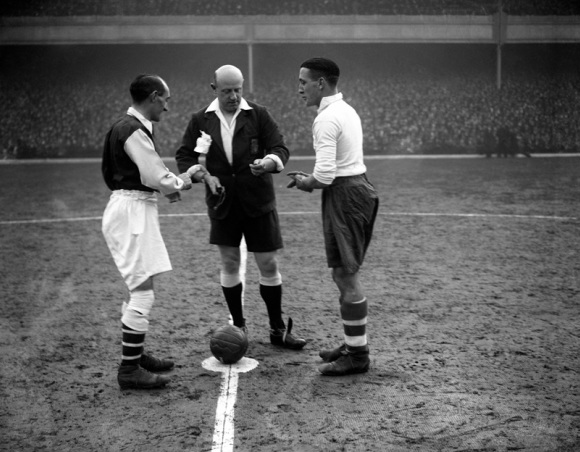
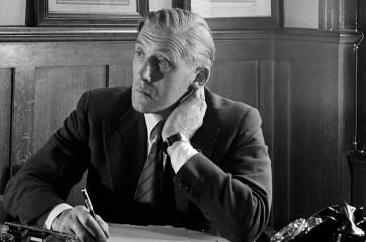
 RSS Feed
RSS Feed
